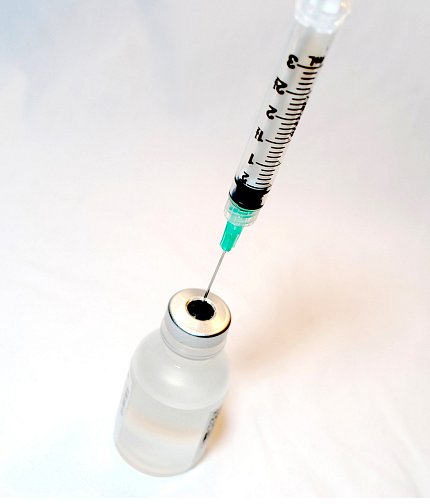Scientists Develop Novel Vaccine for Lassa Fever, Rabies

Photo: NIAID
A novel vaccine designed to protect people from both Lassa fever and rabies showed promise in preclinical testing, according to new research published in Nature Communications. The investigational vaccine, called LASSARAB, was developed and tested by scientists at Thomas Jefferson University in Philadelphia; the University of Minho in Braga, Portugal; the University of California, San Diego; and NIAID.
The inactivated recombinant vaccine candidate uses a weakened rabies virus vector, or carrier. The research team inserted genetic material from Lassa virus into the rabies virus vector so the vaccine expresses surface proteins from both the Lassa virus and the rabies virus. These surface proteins prompt an immune response against both Lassa and rabies viruses. The recombinant vaccine was then inactivated to “kill” the live rabies virus used to make the carrier.
There are currently no approved Lassa fever vaccines. Although Lassa fever is often a mild illness, some people experience serious symptoms, such as hemorrhage (severe bleeding) and shock. The overall Lassa virus infection case-fatality rate is about 1 percent, according to the World Health Organization, but that rate rises to 15 percent for patients hospitalized with severe cases of Lassa fever.
People contract Lassa virus through contact with infected Mastomys rats and through exposure to an infected person’s bodily fluids. Lassa fever is endemic to West Africa where these rats are common. In 2018, Nigeria experienced its largest-ever Lassa fever outbreak, with 514 confirmed cases and 134 deaths from Jan. 1 through Sept. 30, according to the Nigeria Centre for Disease Control.
Africa is also at high risk for human rabies. The WHO estimates that 95 percent of the estimated 59,000 human rabies deaths per year occur in Africa and Asia. Nearly all human rabies deaths are caused by bites or scratches from infected dogs. Effective rabies vaccines and post-exposure shots are available, but many deaths still occur in resource-limited countries, according to the Centers for Disease Control and Prevention.
